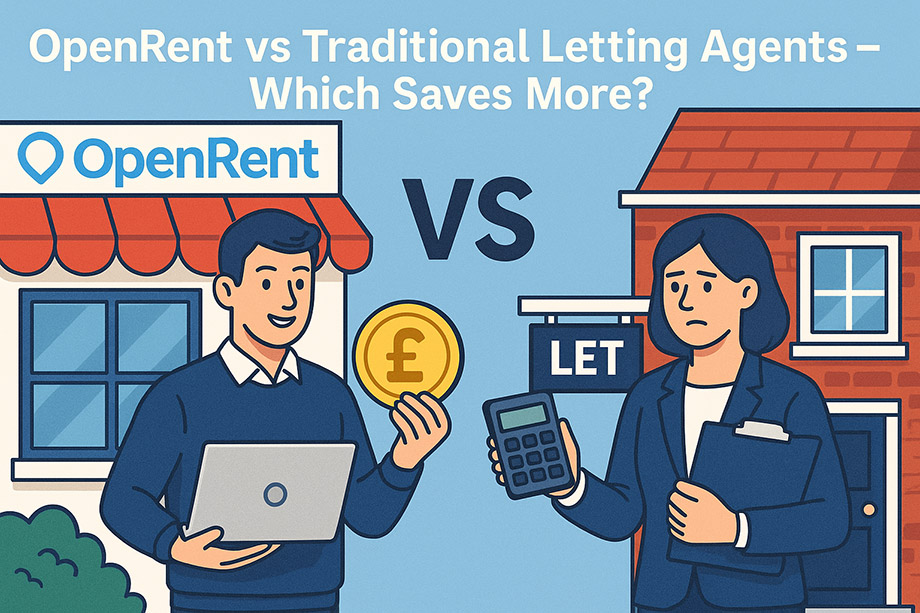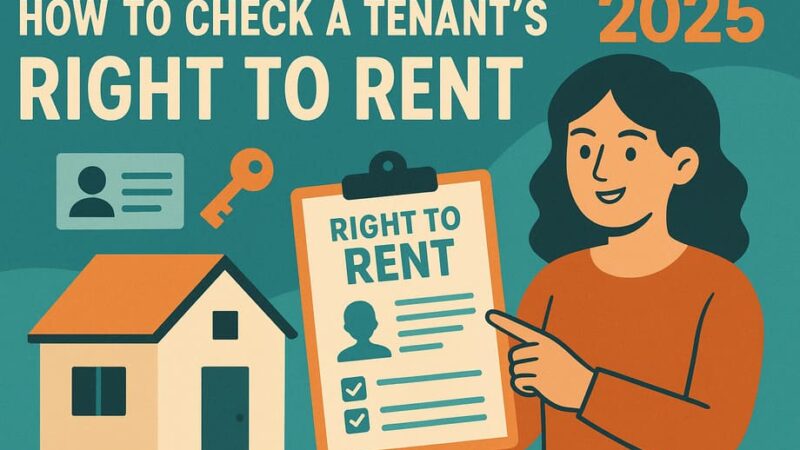OpenRent vs Traditional Letting Agents – Which Saves More?

Renting out a property is a great way to generate income, but it comes with its share of challenges and costs. One major consideration for landlords in the UK is how to let their property efficiently while keeping expenses down. The traditional route is to use letting agents who handle everything but charge significant fees. Alternatively, platforms like OpenRent have emerged, offering a digital, do-it-yourself approach that promises to save landlords money.
In this post, we’ll dive into the key differences between OpenRent and traditional letting agents, explore which option saves landlords more, and provide practical tips to help you decide the best way to let your property.
Table of Contents
What Are Traditional Letting Agents?
Traditional letting agents offer an end-to-end service for landlords. They market the property, conduct viewings, vet tenants, prepare contracts, collect rent, and often manage maintenance issues. For this convenience, agents typically charge a fee that can be a percentage of the monthly rent or a flat fee per tenancy.
While agents provide expertise and reduce landlord workload, their fees can add up to thousands of pounds annually, cutting into rental profits.
What Is OpenRent?
OpenRent is a digital letting platform designed to empower landlords to manage the rental process themselves online. It provides tools to advertise properties on major portals, carry out tenant referencing, create tenancy agreements, and protect deposits, all with transparent, upfront fees.
OpenRent’s model aims to reduce costs by automating much of the process and eliminating the need for a high-fee middleman. This platform suits landlords comfortable with self-management who want to save money but still have professional support where needed.
How Do OpenRent and Traditional Agents Compare on Costs
One of the biggest reasons landlords consider OpenRent is the potential to save money. Here is a quick comparison:
| Service | Traditional Letting Agent Fees | OpenRent Fees |
|---|---|---|
| Tenant Find Fee | Typically 8% to 15% of monthly rent | From £29 to £119 one-off fee |
| Tenancy Agreement | Included in fees | Included in fees |
| Deposit Protection | Usually included | Included with every tenancy |
| Rent Collection & Management | Often charged separately (up to 10%) | Optional; can be self-managed |
| Maintenance & Repairs | Charged separately or markup | Self-managed |
Traditional agents generally charge an ongoing fee that reduces rental income month by month. OpenRent charges a low one-off fee per tenancy without ongoing commission, which can lead to substantial savings, especially on long-term lets.
Seven Tips for Landlords Considering OpenRent or Traditional Letting Agents
If you’re torn between using OpenRent or a traditional letting agent, here are seven tips to help you choose wisely and maximise your savings.
1. Calculate the Total Cost Over Time
Look beyond the initial letting fee. Traditional agents often charge ongoing management fees which can significantly reduce your profit. With OpenRent, you pay upfront and have no ongoing commission. Calculate your expected rental income and deduct both options’ fees over a year or longer to see which is more cost-effective.
2. Assess How Much Time You Can Commit
Traditional agents do most of the work for you. If you don’t want to spend time managing the property, an agent might be worth the cost. OpenRent is best if you’re comfortable managing tenant communications, arranging repairs, and keeping records.
3. Check Tenant Quality Controls
Good tenants are key to hassle-free renting. OpenRent provides comprehensive tenant referencing, including credit checks and employment verification. Traditional agents also do referencing but it can vary in quality. Always ensure whichever option you choose includes thorough tenant screening.
4. Understand Your Legal Responsibilities
Landlords must comply with many legal requirements such as deposit protection, safety certificates, and tenancy agreements. OpenRent provides legally compliant agreements and deposit protection services. Traditional agents handle these as part of their service, which is helpful if you are unfamiliar with the law.
5. Consider Marketing Reach
OpenRent advertises your property on major portals including Rightmove and Zoopla. Traditional agents usually list on these platforms too and may have local contacts. If your property is in a competitive market, the wider the exposure the better your chances of finding tenants quickly.
6. Evaluate Your Comfort with Technology
OpenRent is fully online and designed for tech-savvy landlords. If you prefer face-to-face interactions or have limited internet skills, a traditional agent’s personal touch may be better.
7. Factor in Your Long-Term Plans
If you plan to rent multiple properties or want to scale your portfolio, using OpenRent to save fees on each property can add up. Traditional agents might offer volume discounts or packages but generally come with higher costs.
Pros and Cons: OpenRent vs Traditional Letting Agents
| OpenRent | Traditional Letting Agents |
|---|---|
| Pros: | Pros: |
| Low upfront fees, no ongoing commission | Full-service, less time investment |
| Full control over tenant choice and terms | Experienced handling of legal and tenant issues |
| Transparent pricing and process | Personal service and local market knowledge |
| Fast advertising on major portals | Can manage repairs and emergencies |
| Includes deposit protection and contracts | Often manages rent collection |
| Cons: | Cons: |
| Requires time and effort to self-manage | Higher costs reduce rental income |
| Need to understand legal responsibilities | Less control over tenant selection |
| Limited face-to-face support | Variable quality of agents |
| Less assistance with maintenance | Potential for hidden fees |
Choosing between the two depends on your priorities: cost savings and control versus convenience and hands-off management.
Conclusion
The choice between OpenRent and traditional letting agents ultimately comes down to your personal preferences, budget, and willingness to get involved in managing your property. OpenRent offers clear financial savings with its low upfront fees and no ongoing commissions, making it ideal for landlords who want control and are comfortable managing themselves.
Traditional letting agents provide a hands-off experience but come with higher fees that reduce your rental income. If time and convenience are your priorities and you don’t mind paying for it, an agent may be the right choice.
For many landlords, OpenRent presents an excellent balance-professional services and legal compliance combined with significant savings. Before deciding, weigh up your needs carefully and consider trying OpenRent to see if it fits your style of letting.
Last Updated on July 29, 2025 by James Cartwright







